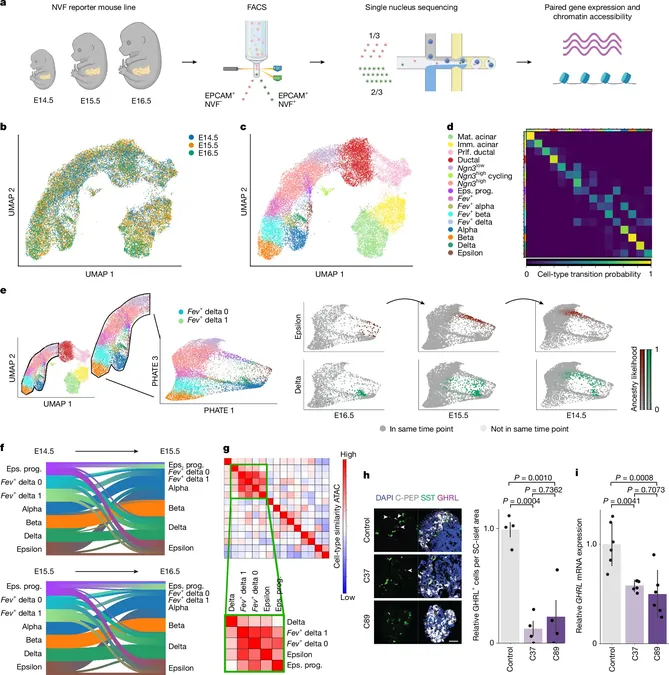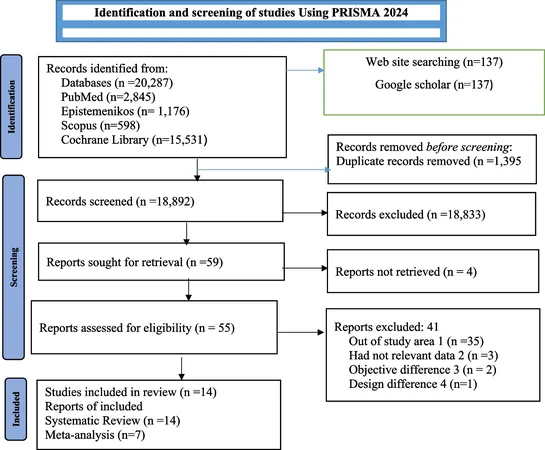
Revolutionary AI Technology "Moscot" Transforms Cell Research, Potentially Changing Disease Treatment Forever!
2025-01-22
Author: Wei Ling
In a groundbreaking advancement in cell research, scientists have unveiled a cutting-edge technology known as Moscot (short for "Multi-Omics Single-Cell Optimal Transport"). This innovative method allows researchers to observe millions of cells simultaneously as they undergo development into various organs, including the pancreas. Spearheaded by an international team led by Helmholtz Munich, the findings were recently shared in the prestigious journal Nature, opening doors to an exciting new frontier in biomedical science.
Historically, biologists faced challenges in understanding cell development in their natural environments, particularly during the formation of organs in embryos. Conventional methods provided disconnected snapshots of only a few cells, failing to capture the dynamic and continuous nature of cellular interactions. Dominik Klein, a leading author of the study and Ph.D. candidate at Helmholtz Munich, stated, "Previous techniques limited our insight into the complex interactions happening during organ development and various disease processes."
What is Moscot? Mapping Cell Development Like Never Before
Developed by an interdisciplinary team that includes experts from Helmholtz Munich, ETH Zurich, Apple, and Hebrew University of Jerusalem, Moscot incorporates the 18th-century theory of optimal transport. This mathematical theory explains how to move objects efficiently to minimize time and energy. While previously restricted to smaller data sets, advancements in artificial intelligence have now enabled Moscot to handle vast biomedical datasets, a breakthrough significantly influenced by Marco Cuturi from Apple.
Klein elaborated, "Our mathematical models now accurately represent the molecular information and positions of cells in the body throughout their development. The optimal transport theory allows us to explore how cells migrate and transition between various states.” As a result, Moscot permits unprecedented, simultaneous observations of millions of cells, providing clarity that was once deemed impossible.
Tracking Complex Cellular Processes Across Organs
One of Moscot's most significant advantages is its ability to perform multimodal mapping of individual cells in spatial tissues, crucial for understanding dynamic biological processes. The technology can elegantly connect millions of cells over time, directly linking changes in gene expression to vital cellular decisions. This capability is especially promising for researchers as it aims to analyze extensive datasets using complex algorithms while maintaining an accessible interface for biologists.
By accurately capturing the molecular state of numerous cells, Moscot enables researchers for the first time to track intricate cellular processes throughout entire living organs and organisms, paving the way for groundbreaking discoveries.
New Horizons in Pancreas and Diabetes Research
Moscot has already begun making waves in pancreatic research. The team utilized the technology to meticulously map the development of hormone-producing cells in the pancreas through a series of multimodal measurements. These findings hold potential implications for diabetes research, allowing scientists to uncover the underlying mechanisms of this prevalent condition.
Professor Heiko Lickert, head of the Institute of Diabetes and Regeneration Research at Helmholtz Munich, highlighted the impact of this work: "This revolutionary perspective on cellular processes creates opportunities for targeted therapies that can address root causes of diseases instead of merely alleviating symptoms."
A Paradigm Shift in Medical Research
Fabian Theis, Director at the Institute of Computational Biology at Helmholtz Munich and a professor at TUM, emphasized the transformative potential of Moscot: "Moscot is pioneering a new era in our understanding and utilization of biological data. It enables us not only to capture the dynamics of cell development in unprecedented detail but also to make accurate predictions about disease progression, with the ultimate goal of tailoring personalized therapies."
Theis also reflected on the essence of interdisciplinary cooperation in achieving such scientific advancements: "The collaborative effort between mathematics and biology in this initiative vividly showcases the importance of diverse disciplines working together for true breakthroughs in science."
The Future of Disease Treatment is Here!
As researchers continue to refine and expand the applications of Moscot, we stand on the brink of a transformative era in medical research and treatment. The technology's ability to provide insightful perspectives on cellular behavior may soon revolutionize how we understand and treat a variety of diseases, potentially leading to cures that we can only dream of today. Keep an eye on this game-changing technology—it might just redefine the future of healthcare as we know it!

 Brasil (PT)
Brasil (PT)
 Canada (EN)
Canada (EN)
 Chile (ES)
Chile (ES)
 Česko (CS)
Česko (CS)
 대한민국 (KO)
대한민국 (KO)
 España (ES)
España (ES)
 France (FR)
France (FR)
 Hong Kong (EN)
Hong Kong (EN)
 Italia (IT)
Italia (IT)
 日本 (JA)
日本 (JA)
 Magyarország (HU)
Magyarország (HU)
 Norge (NO)
Norge (NO)
 Polska (PL)
Polska (PL)
 Schweiz (DE)
Schweiz (DE)
 Singapore (EN)
Singapore (EN)
 Sverige (SV)
Sverige (SV)
 Suomi (FI)
Suomi (FI)
 Türkiye (TR)
Türkiye (TR)
 الإمارات العربية المتحدة (AR)
الإمارات العربية المتحدة (AR)